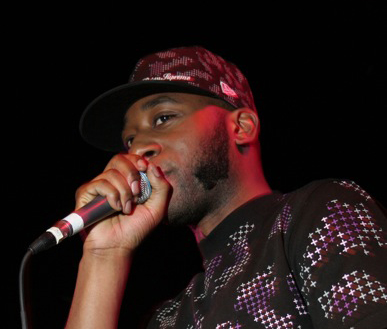This post originally went live on January 19th. Soonafter Charles Holgate called me up (for the 1st time!), requesting that I take it down for two reasons: 1. because I had mistakenly referred to him as an employee of Sarah Lockhart’s Ammunition dubstep conglomerate (rather than an independent publicist who works with them) and 2., because he wanted to ‘keep working the release’. Charles gave me a list of 9 “confirmed press” spots where it was to be reviewed, and told me to give him 2 weeks, during which time he would make good. He suggested that if I didn’t see proof of his work in that time, I could put the post back up. I gladly agreed.
At one point in the conversation, he said that Uproot had been received with apathy. I said “Fine! The UK is a weird market. But why can’t you produce any evidence, even a single email from a journalist in support of that story?” Charles’s response was incredible: he told me that each January he deletes all of his emails from the previous year. (akin to: the dog ate my homework)
Over the next few days, I was contacted by about half a dozen UK music writers, all saying some version of “I regularly get calls/emails from Charles and he never once mentioned Uproot .”
This confirmed my worst suspicions, but I still wanted to give him the benefit of the doubt. Instead of the 2 weeks he asked for, I’ve given him 7…
Unfortunately, the same process has repeated itself. I’ve sent Holgate multiple emails asking for any update on the “confirmed press” (if it was confirmed in mid-January, how come it’s not in print by mid-March?). I was repeatedly told by Charles that I’d get an update “tomorrow”.
After a few weeks of ‘tomorrow’ (well over the 2 week deadline he set for himself) and honoring our verbal agreement— here is the original post, edited to reflect his status as an independent publicist.
_________
I’d like to explain how Charles Holgate aka MC Nomad, an independent publicist best known for his work representing the Tempa/Rinse FM/FWD conglomerate, stole several thousand dollars — not from me, but from the artists I used on Uproot and the label it was released on. But before we get to that, we need to take a quick look at the publicity business.
+ + +
With all the talk about declining record sales and the near-terminal state of the music industry model as we knew it in the 90s, people rarely mention the role of publicists. Like live shows, the work of the publicists will endure even as CD sales plummet.
It’s possible – but highly difficult – to land record reviews in significant media outlets without a publicist acting as intermediary. Music PR fees vary widely – from $1000 to upwards of $5000 a month – and there’s usually a 2 month minimum. (You can, essentially, pay your way onto major TV appearances such as the David Letterman show. But those fees only make sense if you’ve got a decent product, massive fan base, great distribution, a tour to cross-promote, etc.)
That said, the work of a publicist is fairly hard to pin down. They talk to writers and editors – via email, phonecalls, drinks after work, bumping into them at shows, etc. Publicists get music writers hyped about the album, detailing its importance/awesomeness while suggesting ways it can be covered in the writer’s publication(s). They coordinate interviews. Publicists are sensitive to the marketability of any given release and tailor the campaign around that. Usually PR companies give the record label mailing address and the label does the physical mailout. One pays the publicists to follow up: “have you received the package? what did you think?…”
In a perfect world, a publicist is a cool person who helps translate the musician’s vision to the public. Their fees pays for themselves via increased CD sales, and everybody’s happy. This is often the case! In an imperfect world you get Holgate… wait, it almost never gets that bad. (More on this in a bit)
Hiring a professional publicist is a virtual necessity for any release’s visibility. But their work is intangible — How do you quantify buzz? And a publicist’s role in raising it? The only time I got reviewed in VIBE was with Gold Teeth Thief, a mix CD that was barely buyable. Lord knows I’ve never had a publicist or manager.
CHARLES HOLGATE: BAD AMMUNITION
Only three titles from my entire discography have been serviced by a publicity firm: Minesweeper Suite, Special Gunpowder, and now Uproot. For the recent CD, the label (the Agriculture) hired online PR in America (note: they didn’t do print media PR). In the UK, they hired a person named Charles Holgate. Dubstep fans may know Charles from his appearances as MC Nomad.
 [Tempa/FWD/RinseFM publicist Charles Holgate]
[Tempa/FWD/RinseFM publicist Charles Holgate]
After he agreed to work for the Agriculture, Charles informed them that he was leaving Zzzonked (a PR firm) to go solo, focusing on publicity for dubstep’s cross-platform monopoly: Ammunition / FWD / Rinse FM. The first two are run by Sarah Lockhart. Ammunition is the parent company of several dubstep record labels: Tempa, Soulja, Road, Vehicle, Shelflife, Texture, Lifestyle, and Bingo. FWD has long been promoted as the dubstep night, offering the canonical dubstep experience. (Yes kids, the ‘underground’ London dubstep scene is a carefully controlled, heavily centralized machine). Rinse FM is a London pirate station. Charles and Sarah work with Rinse FM in its attempt to ‘go legit’ and enter the commercial radio market. Charles assured the Agriculture that everything would be fine despite his sudden move.
I met Charles Holgate aka MC Nomad in London this July. We ate pasta and discussed Uproot. He seemed professional. I went away content. Then Charles disappeared. After being paid-in-full for his services and and receiving the promo CDs, he simply stopped returning our emails. Complete silence. (During an album’s promotional campaign, it’s normal to have at least several email interchanges with the publicist each week).
I began to worry – not a single sign of interest had come from the UK. This is highly unusual. The UK boasts what is probably the world’s highest per-capita number of electronic music fans. (Perhaps it’s John Peel’s legacy.) I was getting interview requests from the Czech Republic, Italy, Mexico – yet nothing at all from the UK. In early October Charles Holgate broke his silence, promising a “full update” in a few days. Nothing arrived. In early November Charles Holgate promised a “full update” in a few days. Nothing arrived. No response to emails, no returning phone calls. It was obvious we’d been had, but I hoped he was honest enough to explain why, and either start working or give back the remaining copies.
I decided to give him a call on December 17th. Connection! Once he heard it was me, Charles began stammering… He told me he had received 100 copies (the label had sent him 200-300 CDs). He kept stammering. He promised to email an update by 1pm the next day. Nothing arrived. Two weeks ago Holgate sent us the long-awaited “update” (only 6 months late!) in which he took responsibility for the Pitchfork review and two mentions (not reviews) on UK websites that I’m in direct contact with. Charles blamed his lack of results on end-of-year holidays (remember, we started working with him in July). He apologized. He promised weekly updates. Since then, nothing.
 [MC Nomad on the mic]
[MC Nomad on the mic]
I’m outing Charles Holgate because I don’t want this to happen to any other labels or artists. It’s more severe than the typical lazy publicist or unpromotable release. If he hadn’t been stammering like a fool when I asked him what was going on, I might’ve given Charles the benefit of the doubt. Why? Because this is the first time I’ve been dicked over in the music business. In general, the independent music scene is very self-supportive and honest and open-minded.
For the record, this was not my money spent — I mean stolen. I received a flat producer’s fee for Uproot— any profits made are to be split 50/50 between the record label and the artists on the mix.
So yes, a publicist who works with Ammunition/FWD/Rinse FM torpedoed the project in the UK. I have no reason to believe that Ammunition knew about Holgate’s activities; I mention Ammunition because most know him for his work representing them (and as MC Nomad on Rinse FM, etc). By snatching the label’s money and several hundred of its CDs in exchange for silence and inept lies, Charles Holgate has robbed the artists on Uproot and the label that was cool enough to release it in the first place (most labels hate mix CDs since the licensing is expensive and requires a mountain of paperwork).
Instead of UK publicity paying for itself via increased sales/visibility, there is a big black hole. ‘MC Nomad’ buried Uproot! (the irony is not lost on me.) Usually UK distros will send a few copies to key media sources, but since Charles Holgate was contracted to do just that, the distro didn’t perform their standard basic mail-out. Result: few or no UK media sources received the mix.
If you are in the UK, I suggest that you ask him for a copy. Charles Holgate should have several hundred Uproots occupying space in his London flat.






